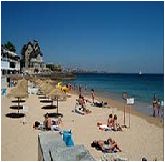Portuguese law is strongly pro-tenant
 The law in Portugal is strongly pro-tenant, despite substantial changes being made this June 28th 2006, as a result of the New Urban Lease Act (Novo Regime de Arrendamento Urbano – “NRAU”). NRAU is enormously controversial, and is at the centre of passionate public debate, and may yet face constitutional challenges.
The law in Portugal is strongly pro-tenant, despite substantial changes being made this June 28th 2006, as a result of the New Urban Lease Act (Novo Regime de Arrendamento Urbano – “NRAU”). NRAU is enormously controversial, and is at the centre of passionate public debate, and may yet face constitutional challenges.
Notice
The urban lease regime in Portugal is in transition. After a timid reform in the 1990’s, substantial further changes are expected on June 28th 2006 as a result of the New Urban Lease Act (Novo Regime de Arrendamento Urbano – “NRAU”). Aimed at revitalizing Portuguese lease market, NRAU replaces previous legislation, and is applicable to all urban lease agreements, although agreements signed before 28th June 2006 are treated differently (notably regarding rent updates).
RAU is enormously controversial, and is at the centre of passionate public debate. It may yet face constitutional challenges involving the Portuguese President (Presidente da República), Parliament, and the Constitutional Court (Tribunal Constitucional). Indeed NRAU could well suffer a last-minute downfall. So we outline the existing legislation which will remain in force at least until 28th June 2006, notably the Urban Lease Act (Regime de Arrendamento Urbano – “RAU”). We mention NRAU where it will introduce changes.
This article does not cover Portuguese urban lease agreements for “special purposes” (e.g. temporary residence in vacation areas), whose terms can be (almost) completely agreed between the parties.
 Rents: Can landlord and tenant freely agree rents in Portugal?
Rents: Can landlord and tenant freely agree rents in Portugal?
The amount of the rent can usually be freely agreed between the parties, with the exception of low cost housing (“conditioned rent” and “supported rent”).
Rent reviews can also be freely agreed (although they must take place annually), and, with careful drafting, cost-of-living rent increases and suchlike can be agreed (although in some types of non-residential lease such freedom depends on the existence of a first term of five years for the lease). If no specific agreement exists, the rent may be adjusted by the landlord annually according to scales periodically established by law.
Deposits
The parties may agree on the payment of one month’s rent in advance (the agreement must be in writing). When NRAU becomes effective, the parties will be able to agree up to three months’ rent in advance. Rent is due on the 1st day of each month, except where the parties agree otherwise.
Security deposits are allowed, and will continue to be allowed.
What rights do landlords and tenants have in Portugal, especially as to duration of contract, and eviction?
In this area the differences between the present legal situation (RAU) and the laws shortly to be introduced (NRAU) are a little complex:
RAU
Duration
Open-ended leases are the “general regime.” Fixed-term leases are only allowed where the agreed first period is of a minimum five years’ duration, and at most 30 years. Automatic extensions of three years apply for residential leases.
Eviction
 The landlord may only terminate the lease agreement for a few reasons including (but not limited to):
The landlord may only terminate the lease agreement for a few reasons including (but not limited to):
- failure to pay rent
- use of the property for purposes not set out in the contract
- use of the property for illegal purposes (e.g. unauthorized sublease)
- illicit, immoral or dishonest purposes
- relevant works in the property without landlord consent
Eviction must be through an eviction claim (Acção de Despejo) in the courts.
The landlord may also (with some exceptions):
- In the case of open-ended leases, judicially oppose a lease extension if he (or his direct descendants) need the property for residence, or to perform works that will result in additional property to lease;
- In case of fixed-term leases oppose lease extensions by giving judicial notice one year in advance of the lease maturity date.
The tenant may:
- In the case of open-ended leases, oppose lease extensions by giving prior notice ranging from a few days to 6 months (depending on the lease/lease extension period), in respect of the lease/lease extension maturity date.
- In the case of fixed-term leases, oppose lease extensions by giving 90 days’ prior notice in respect of the lease/lease maturity date. Termination without cause can also be made at any time with the prior notice of 90 days, but this period may be (and usually is) contractually increased.
The tenant may terminate the lease at any time based on the landlord’s breach of the contract.
NRAU
Duration
The parties may stipulate a fixed term for contracts with a minimum initial term of five years. There are automatic and consecutive extensions of three years. In the absence of such a fixed term stipulation, the lease agreement will be considered open-ended.
Eviction
Residential leases may be terminated as follows:
- Open-ended: the landlord must give five years notice. The tenant must give 120 days notice.
- Fixed-term: the landlord may oppose extensions by giving a prior notice of one year. The tenant needs to give a notice of 120 days after the first six months of agreement execution. Both tenant and landlord may also terminate the lease on the ground of breach of the agreement by the other party, without any restriction as to the relevant breaches (new open clause system) .
Eviction requires declaratory judicial proceedings (acção declarativa) followed (when necessary) by enforcement proceedings (acção executiva).
A forthcoming package of extrajudicial instruments is expected to allow enforcement, in some cases, without prior declaratory judicial proceedings (including cases where there is a termination agreement, or evidence of notification to the tenant of executive procedures claiming payments of rent).
Non-residential leases will follow a different regime, an innovation introduced by NRAU.
How effective is the Portugal legal system?
According to the Government a complete eviction procedure presently takes about 31 months. It is not clear how long evictions will take under NRAU.
EVICTION FOR NON-PAYMENT OF RENT |
||
| Duration until completion of service of process | 20 | |
| Duration of trial | 180 | |
| Duration of enforcement | 30 | |
| Total Days to Evict Tenant | 330 | |
| Courts: The Lex Mundi Project | ||
Legislation
Currently, urban leases are regulated by the Portuguese Civil Code (Código Civil), by RAU (as amended), and by complementary legislation.
All this legislation will be replaced by NRAU, approved by the Portuguese Parliament (Assembleia da República) through Law n. 6/2006 published in Series I-A of the Portuguese Official Gazette (Diário da República) on 27th February, which will enter into force in June 28th 2006. It comprises the reinstatement of articles 1064º to 1113º of the Civil Code (Código Civil) and amendments to other relevant legislation, including the Civil Procedure Code (Código de Processo Civil).
Brief History: Recent changes in Portugal landlord and tenant law
The urban lease has been regulated in Portugal for several centuries. In the last 140 years it has been subject to hundreds of laws and regulations, mostly as a result of political changes during the 20th century. The 1966 Civil Code (Código Civil) consolidated the urban lease regulations to date, including the 1948 law suspending rent increases in Portugal’s two main cities, Lisbon and Oporto.
 The left-wing revolution of 1974 and the turbulent 1980s ushered in a highly pro-tenant urban lease regime. There were severe restrictions on the landlord’s termination rights, and rent increases were forbidden or very much limited.
The left-wing revolution of 1974 and the turbulent 1980s ushered in a highly pro-tenant urban lease regime. There were severe restrictions on the landlord’s termination rights, and rent increases were forbidden or very much limited.
After 1990, RAU and its amendments introduced some changes (e.g. in respect of fixed-termed leases). But NRAU and its complementary legislation is expected to restore balance between landlord and tenants’ rights, restore competitiveness to the urban lease market, and allow the recovery of property from tenants. This will be a major turning point in Portuguese urban lease history, if NRAU is not smothered at birth.